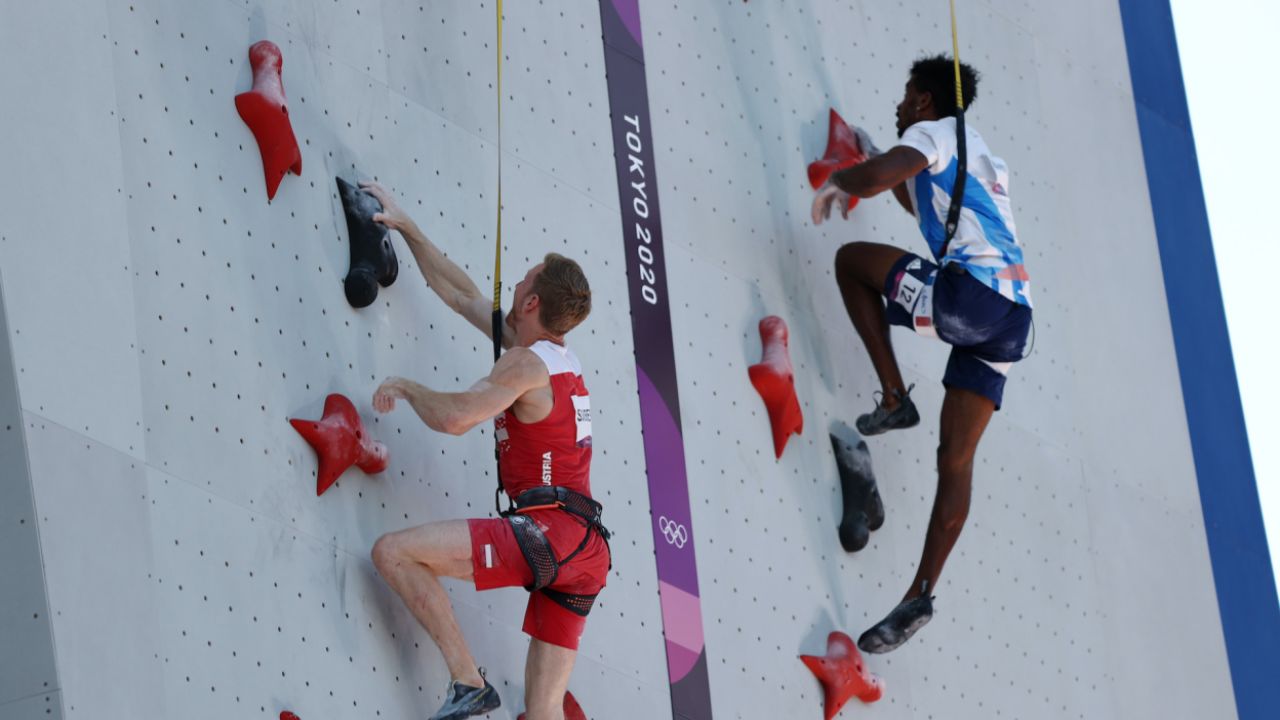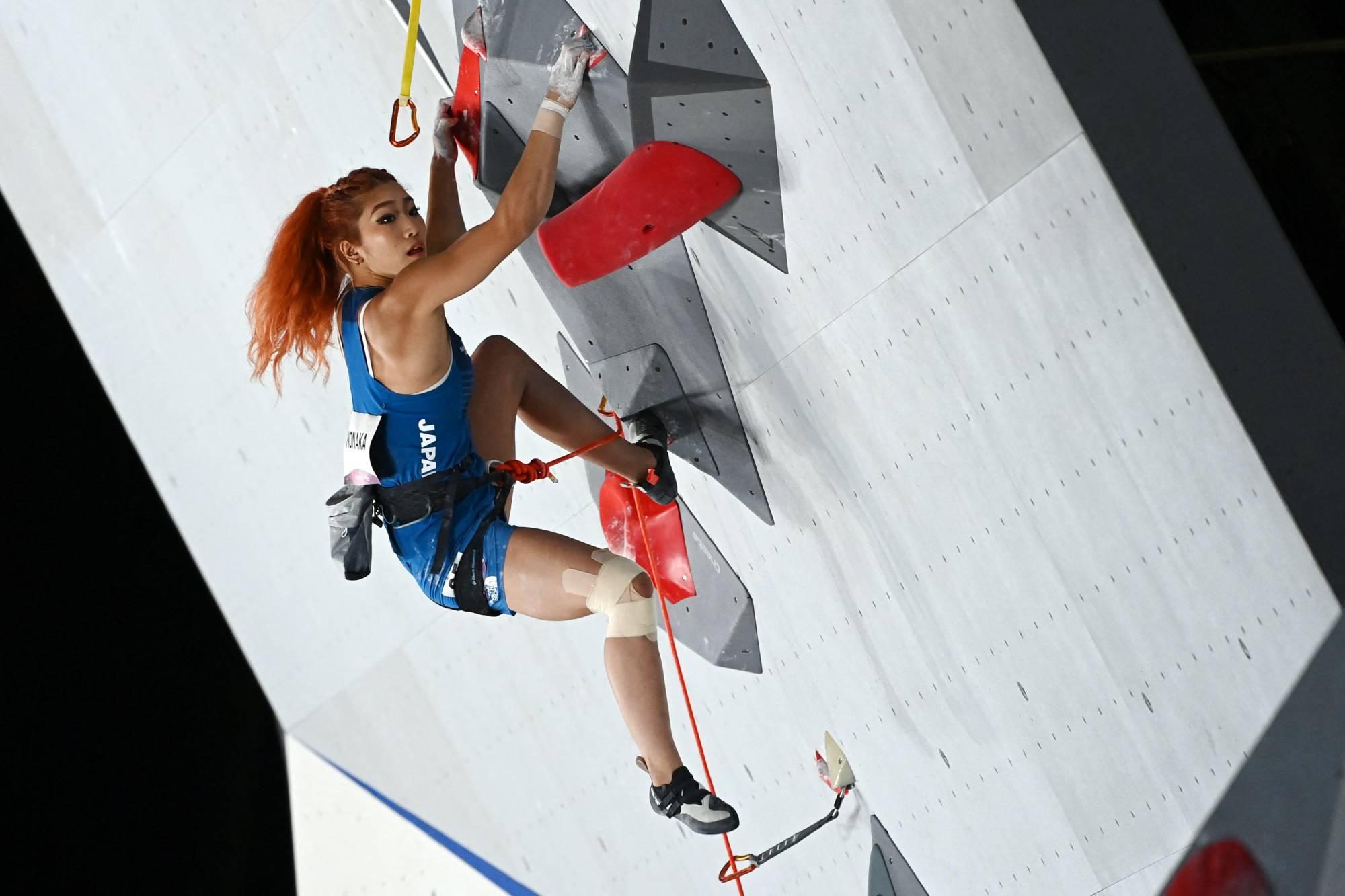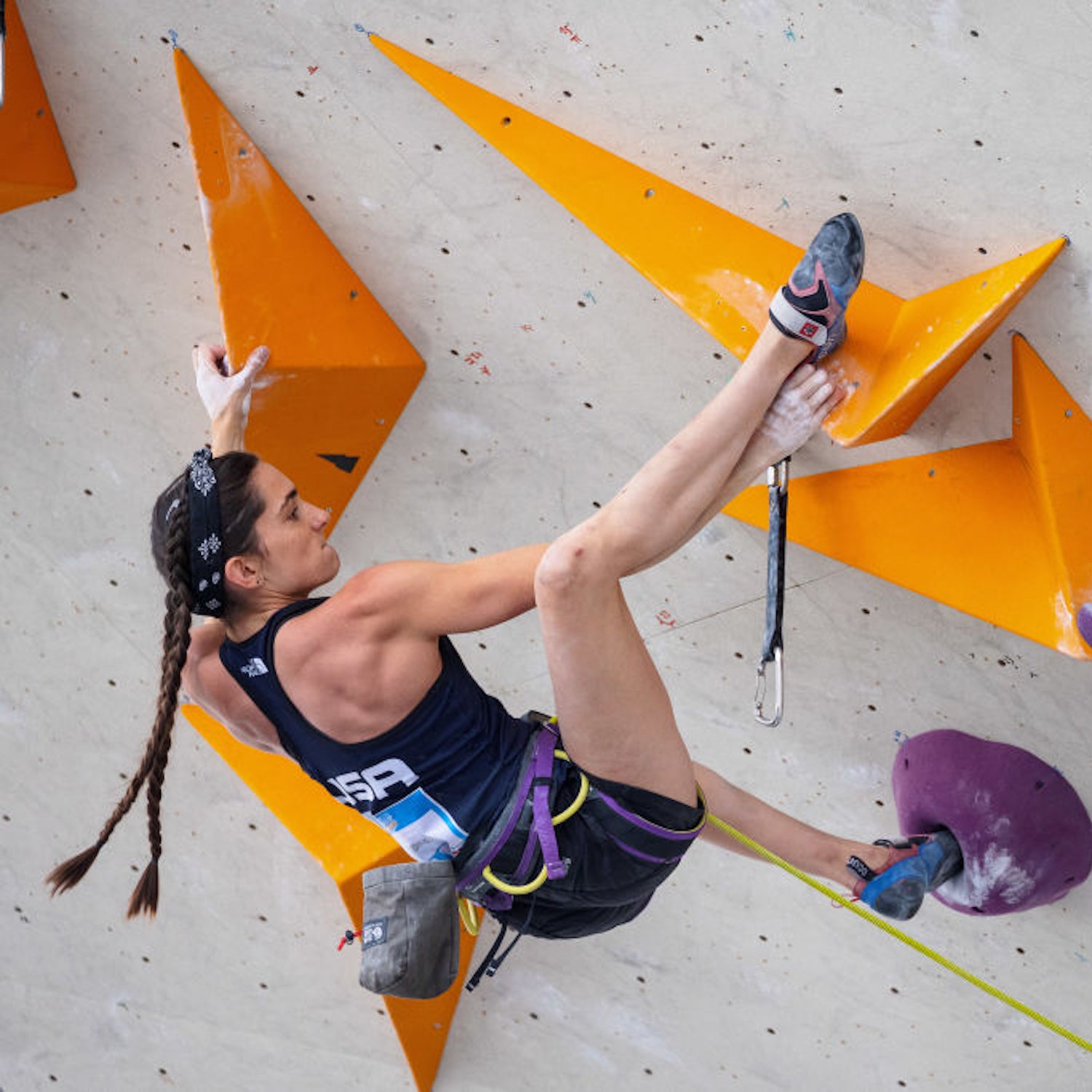Climbing in the Olympics

The inclusion of climbing in the Olympic Games marked a historic moment for the sport, elevating its global profile and inspiring a new generation of athletes. Climbing’s journey to the Olympic stage was a testament to its growing popularity, technical prowess, and the dedication of its passionate community.
The Different Disciplines of Climbing in the Olympics
The Olympic climbing competition features three distinct disciplines, each demanding unique skills and physical attributes:
- Lead Climbing: In this discipline, climbers ascend a challenging route, using ropes and protection gear to safeguard their progress. The goal is to reach the highest point on the route within a set time limit. Lead climbing emphasizes strength, endurance, and technical proficiency in route reading and movement strategy.
- Bouldering: Bouldering involves climbing on shorter, low-height walls without ropes. Climbers attempt to complete pre-set boulder problems, focusing on dynamic movements, creative solutions, and precise footwork. Bouldering tests strength, power, and problem-solving abilities.
- Speed Climbing: Speed climbing is a race against the clock. Climbers ascend a standardized route as quickly as possible, using a pre-set sequence of holds. Speed climbing demands explosive power, agility, and a smooth, efficient climbing technique.
The Qualification Process for the Climbing Events in Paris 2024
The qualification process for the climbing events in Paris 2024 involves a combination of continental and global competitions. Athletes accumulate points throughout the qualification period, with the top-ranked climbers securing their place in the Games.
- Continental Championships: Athletes compete in regional championships, earning points towards their overall ranking. These events provide an opportunity for climbers from different continents to showcase their skills and compete for a coveted spot in the Olympics.
- World Championships: The World Championships serve as a crucial qualifying event, awarding significant points to the top performers. This global competition brings together the world’s best climbers, creating a highly competitive environment and a platform for athletes to prove their worth.
- Olympic Qualifying Events: Specific Olympic qualifying events are held throughout the qualification period, offering additional opportunities for climbers to earn points and secure their place in the Games. These events provide a final chance for climbers to demonstrate their readiness and solidify their position in the Olympic rankings.
Key Athletes to Watch: Climbing Olympics 2024

The Paris 2024 Olympics will feature a diverse and talented field of climbers, each vying for a coveted medal. Here, we highlight some of the top contenders in both the men’s and women’s categories, examining their strengths, achievements, and potential for success in the upcoming Games.
Top Male Climbers
The men’s competition is expected to be fiercely contested, with several climbers poised to challenge for the podium.
- Adam Ondra (Czech Republic): Widely considered one of the greatest climbers of all time, Ondra possesses exceptional technical skill, power, and endurance. He has achieved the highest difficulty grade in climbing, 9c, and has won numerous World Championships and World Cups. His experience and consistency make him a strong contender for gold in Paris.
- Alberto Ginés López (Spain): The reigning Olympic champion in climbing, Ginés López is a versatile climber who excels in all three disciplines: bouldering, lead climbing, and speed climbing. His ability to perform well across the board gives him a significant advantage in the combined format. He is a young and ambitious climber who will be looking to defend his title in Paris.
- Jakob Schubert (Austria): Schubert is a highly skilled climber with a strong focus on lead climbing. He has won multiple World Championships and World Cups in lead climbing and is known for his precise movements and exceptional route reading. His consistency and technical prowess make him a formidable competitor.
Top Female Climbers, Climbing olympics 2024
The women’s competition promises to be equally exciting, with a number of talented climbers vying for the top spot.
- Janja Garnbret (Slovenia): Garnbret is widely regarded as the dominant force in women’s climbing, having won numerous World Championships and World Cups in all three disciplines. She is known for her exceptional strength, technique, and problem-solving abilities. Her consistency and dominance make her a clear favorite for gold in Paris.
- Brooke Raboutou (USA): Raboutou is a talented climber with a strong focus on bouldering. She is the reigning World Champion in bouldering and has consistently performed well in international competitions. Her dynamic movements and powerful style make her a dangerous competitor in the combined format.
- Ashima Shiraishi (USA): Shiraishi is a young and accomplished climber who has made history as one of the youngest climbers to achieve the highest difficulty grade in bouldering. She is known for her creativity, technical skill, and ability to solve complex problems. While she is still relatively new to the international climbing scene, her potential is undeniable.
Competitive Landscape and Rivalries
The climbing competition in Paris is expected to be fiercely competitive, with numerous athletes capable of winning medals.
- Adam Ondra vs. Alberto Ginés López: This rivalry is a clash of experience and youth. Ondra’s dominance in the sport and extensive experience are pitted against Ginés López’s youthful exuberance and Olympic title.
- Janja Garnbret vs. Brooke Raboutou: Garnbret’s consistency and dominance are challenged by Raboutou’s bouldering prowess and dynamic climbing style. This rivalry promises to be a battle of strengths and weaknesses.
- Jakob Schubert vs. other lead climbers: Schubert’s strength in lead climbing will be tested by other skilled climbers like the Japanese climber Tomoa Narasaki, known for his speed and technical skill.
Training Regimes and Strategies
The training regimes of elite climbers are highly individualized and tailored to their strengths and weaknesses.
- Strength and Conditioning: Climbers often incorporate weightlifting, plyometrics, and core exercises to build strength, power, and endurance.
- Technical Training: Climbers spend considerable time on specific climbing routes, focusing on technique, movement efficiency, and problem-solving.
- Mental Preparation: Mental resilience and focus are crucial for success in climbing, with athletes often utilizing visualization techniques and mindfulness practices to enhance performance.
The Future of Climbing in the Olympics

The inclusion of climbing in the 2020 Tokyo Olympics marked a significant milestone for the sport, propelling it onto the global stage and potentially opening doors for future growth and development. This inclusion not only showcased the athleticism and technical prowess of climbers but also sparked a wave of interest and curiosity about the sport among a wider audience.
The Impact of the Olympics on Climbing’s Popularity and Accessibility
The Olympics have undoubtedly played a crucial role in boosting the popularity of climbing worldwide. The captivating visuals of climbers scaling towering walls, the intensity of the competition, and the unique blend of strength, agility, and mental fortitude have captivated viewers. This increased exposure has led to a surge in participation, with climbing gyms experiencing a rise in membership and new climbers taking up the sport.
The Olympics have also made climbing more accessible. The increased media attention and sponsorship opportunities have facilitated the development of climbing facilities, particularly in countries where the sport was previously less established. This has allowed more people to experience climbing, regardless of their location or socioeconomic background.
Factors Shaping the Future of Climbing in the Olympics
The future of climbing in the Olympics is promising, but it hinges on several key factors that will influence its trajectory. The following table Artikels these factors and their potential impact:
| Factor | Impact | Example |
|---|---|---|
| Competition Format | The format of the competition will play a crucial role in determining the excitement and appeal of the sport to viewers. The current format, which combines bouldering, lead climbing, and speed climbing, provides a diverse and engaging spectacle. However, ongoing discussions about potential adjustments to the format, such as incorporating new disciplines or tweaking the scoring system, could significantly impact the sport’s future. | In the 2024 Paris Olympics, the climbing competition format will likely remain the same, with athletes competing in all three disciplines: bouldering, lead climbing, and speed climbing. However, the scoring system may be adjusted to enhance the overall spectacle and make it more understandable for viewers. |
| Media Coverage | Extensive and engaging media coverage is vital for maintaining public interest and attracting new audiences. The Olympics provide a platform for showcasing climbing to a global audience, but continued media attention beyond the Games is crucial for sustaining growth. This includes innovative storytelling, engaging documentaries, and highlighting the sport’s diverse aspects, from competitive climbing to recreational climbing and its environmental and cultural significance. | The International Olympic Committee (IOC) has been working to increase media coverage of climbing, including partnerships with major broadcasters and social media platforms. The IOC has also been promoting climbing through its Olympic Channel, which features documentaries, highlights, and behind-the-scenes content. |
| Athlete Development | The success of climbing in the Olympics depends heavily on the development of talented athletes. Investing in athlete training, coaching, and infrastructure is crucial for nurturing future generations of climbers. This includes providing access to high-quality training facilities, supporting athletes with financial assistance and scholarships, and developing comprehensive athlete development programs. | Several countries, including Japan, Austria, and France, have established national climbing teams and provide extensive support to their athletes. These programs include dedicated coaches, training facilities, and access to high-performance training camps. |
Climbing olympics 2024 – The Climbing Olympics in 2024 are sure to be a thrilling spectacle, with athletes pushing their limits to reach the summit of their sport. After a long day of intense competition, unwind in the comfort of the Sorina bonded leather chair , a perfect spot to relax and reflect on the day’s challenges.
As you settle into the plush cushioning, imagine the next Olympic climb, a testament to human strength and resilience.
The 2024 Paris Olympics will feature climbing as a sport for the second time, and the excitement is building. The format for the climbing competition is a combined event, testing athletes’ skills across three disciplines: lead, bouldering, and speed climbing.
For a glimpse into the dynamic world of this new Olympic era, check out this article on sport climbing combined olympics live , which provides a comprehensive look at the evolving landscape of the sport. As the world awaits the spectacle of the climbing competition in Paris, it’s clear that this thrilling discipline is poised to capture the hearts of viewers and inspire a new generation of climbers.